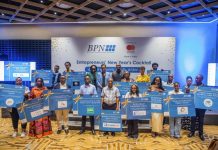Africa-Press – Rwanda. In Rwanda, coding has often been seen as a very promising career path, but currently, there is a local and global debate regarding the future of coders amidst the rise of generative AI tools that can write code on demand.
Despite this, Rwanda’s software developers insist that the demand for coders will remain high as the country accelerates its digital transformation.
Speaking to The New Times, Amina Uzayisenga, Software Test Engineer and AI Lead at TestSolutions Rwanda Ltd, believes AI is reshaping, not replacing, software development.
“Instead of writing every line of code from scratch, many developers now get help from AI tools like GitHub Copilot or ChatGPT and others. These tools can suggest code, help spot errors, or even explain complex code in simple terms,” Uzayisenga said.
“AI is making development faster and easier. But it’s also pushing developers to focus more on creative problem solving and building smarter, AI-powered applications,” she added.
She predicted that simple coding jobs may decrease in the future, but the demand for developers will remain strong, especially those who can harness AI’s potential.
“Over the next 5 years, good developers will still be needed, especially those who can work alongside AI. However, simple coding jobs might decrease, since AI can handle much of that work. But those who upskill and learn to work smarter with AI, their value will go up,” she said.
Samuel Rutunda, Chief Technical Officer and Research Lead at Digital Umuganda, argued that with Rwanda’s digital transformation, a lot of projects are being developed, hence increasing demand for more coders.
“AI is more of an assistant than a replacement. It still needs human input to function properly,” Rutunda explained.
“With Rwanda’s ongoing digital transformation, more projects are coming up, and that increases the need for skilled developers.”
Rutunda warned that while AI tools may increase efficiency, there shouldn’t be overdependence on them, citing that AI-generated codes can sometimes consume developers’ time, especially while dealing with bugs created by AI.
“AI models can hallucinate or fabricate code because they lack true understanding. They read massive amounts of internet content to give feedback, but they don’t comprehend real-world context,” he added.
He also pointed out concerns related to intellectual property and data privacy that come with over-use of AI tools. He noted that developers using public AI tools like ChatGPT are at risk of exposing sensitive company data, since most AI tools continuously learn from prompts and keep the information for future use.
“If someone pastes proprietary source code into ChatGPT, that data may help train the model, and potentially be exposed in future responses to others,” he said.
Changes in hiring coders
Rutunda and Uzayisenga both underscored that developers who understand how to integrate AI tools in their workflow are gaining an edge.
“Those who understand AI tools and their trends have an edge, as opposed to someone who just wants to code based on things that are in their heads,” Rutunda said.
Uzayisenga reckoned that in the coming years, companies will look for developers who can work hand-in-hand with AI and understand how to build and integrate AI tools, not just traditional apps.
Rutunda insisted that programmers must still master the fundamentals as heavy reliance on AI may lead to losing ability to spot its errors, noting that understanding the basics is critical.
Young developers weigh in
Izzeddin Ishimwe, a full-stack developer at Ujembo, said that if in the past, it would take two years to build one application and now you can build ten within the same period, there is a big need for more developers to maintain and scale them.
Emeline Uwimbabazi, a recent university graduate in Software Engineering, said AI may support coders to excel.
“I don’t think AI can be the best competitor for coders; it would rather be one of the tools to help them excel,” she noted.
For More News And Analysis About Rwanda Follow Africa-Press






